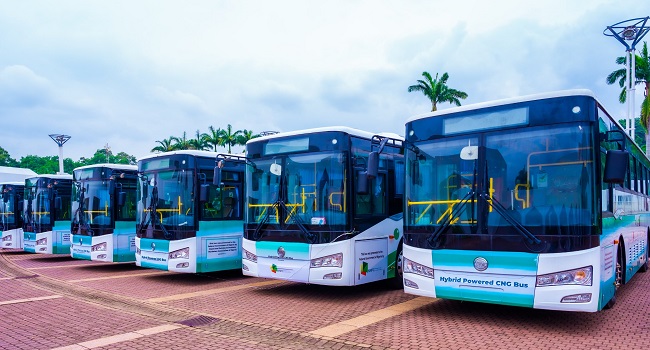Business
Presidency Addresses CNG Safety Concerns as Malaysia Plans Phase-Out

The Nigerian presidency responds to public concerns over CNG safety, following Malaysia’s plans to phase out the fuel. Get details on the safety reassurances and Nigeria’s approach to sustainable energy.
The Presidency has emphasized that Compressed Natural Gas (CNG) is a safer and more cost-effective option compared to petrol.
Bayo Onanuga, the Special Adviser on Information and Strategy to President Bola Tinubu, took to his X handle on Thursday to reassure Nigerians after a report emerged about the Malaysian government’s plans to phase out natural gas-powered vehicles by July 2025.
In his post, Onanuga emphasized that “the situation in Malaysia concerns the safety of LPG rather than CNG.”
The presidential spokesperson stated that Malaysia’s efforts to transition away from expensive and polluting petrol and diesel were unsuccessful, in contrast to the successful transitions made by India, China, Iran, and Egypt.
He mentioned that the Asian nation did not establish tank manufacturing capabilities during its 15-year unsuccessful transition, and noted that Nigeria is already making progress in this area within its first year.
The statement says, “There needs to be some clarification on Malaysia’s strategy for phasing out CNG-powered vehicles: The issue in Malaysia is more related to the safety of LPG rather than that of CNG.”
In the initial report, Transport Minister Anthony Loke stated: “Some car owners have altered their vehicles by using liquefied petroleum gas (LPG) cylinders, which poses significant danger.”
READ ALSO: NIPCO Reveals True Cause of CNG Car Explosion at Edo Gas Station
The report also addressed the safety of CNG cylinders that are 15 years old. NGV includes both CNG and LPG, but Nigeria has opted to transition exclusively to using CNG due to legitimate safety and cost concerns associated with LPG.
Malaysia struggled to transition effectively away from expensive and more polluting petrol and diesel.
Converting 45,000 vehicles over a span of 15 years (less than 0.2%) is not impressive compared to India, China, Iran, and Egypt.
The conclusion of the 15-year CNG tank cycle necessitates replacing tanks. Without established tank manufacturing capabilities, it proved more economical and straightforward for them to terminate their program and revert to using petrol. Meanwhile, Nigeria has already embarked on developing these capacities in its first year.
The Federal Government has been promoting the conversion of vehicles from petrol to CNG for Nigerians, yet concerns persist among the public due to reports of explosions in CNG-powered vehicles and other negative incidents.
During an event in October, President Bola Tinubu highlighted the pressing necessity for Nigeria to utilize its abundant natural gas resources within the transportation sector.
He claimed that CNG transportation is economically essential for Nigeria, indicating a major change in the country’s approach to public transit and energy consumption.
He had stated that using natural gas to power Nigeria’s transportation industry is the next logical step.
